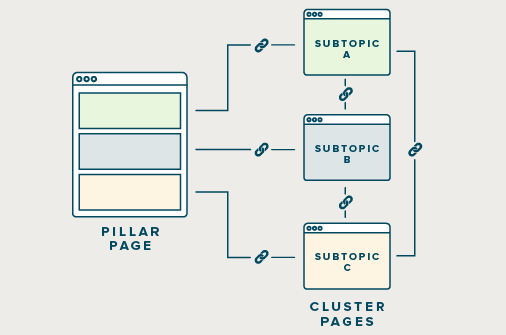Discover the ultimate guide to SEO for Marketing. Elevate your brand with proven strategies, case studies. Don’t miss skyrocketing your ROI!
In the digital age, the importance of Search Engine Optimization (SEO) cannot be overstated. For marketing agencies, mastering SEO is not just a necessity but a critical asset that can differentiate you from competitors. The irony is that while marketing agencies are busy optimizing their clients’ online presence, they often neglect their own SEO strategies. This article aims to provide a comprehensive guide on how to optimize SEO specifically for a marketing agency.
Understanding the Importance of SEO for Marketing Agencies
Before diving into the nitty-gritty, it’s crucial to understand why SEO is so important for marketing agencies. SEO is the backbone of online visibility. It helps your agency:
- Attract Organic Traffic: The higher you rank on search engines, the more organic traffic you attract. This is often high-quality traffic with a better conversion rate.
- Build Credibility: Ranking high on search engines like Google adds a layer of credibility to your agency. Clients are more likely to trust agencies that appear on the first page of search results.
- Cost-Effective Marketing: Unlike paid advertising, the results of a good SEO strategy often last longer and are more cost-effective in the long run.
- Competitive Advantage: If your competitors are not investing in SEO, this gives you a significant edge. Even if they are, effective SEO can help you outrank them.
Keyword Research: The Foundation of SEO
Identifying Your Target Keywords
The first step in any SEO strategy is keyword research. For a marketing agency, this involves identifying keywords that potential clients might use to find services like yours. Tools like Google Keyword Planner, SEMrush, and Ahrefs can be invaluable for this.
- Service-Based Keywords: These are keywords directly related to the services you offer, e.g., “digital marketing agency,” “SEO services,” “PPC management.”
- Local Keywords: If your agency focuses on local clients, include location-based keywords, e.g., “marketing agency in New York,” “SEO services in Chicago.”
- Long-Tail Keywords: These are longer, more specific keywords that are less competitive but can attract highly targeted traffic, e.g., “best SEO strategies for small businesses.”
- Competitor Keywords: Research keywords your competitors are ranking for. Tools like SEMrush can help you spy on your competitors’ keyword strategies.
Mapping Keywords to Content
Once you have a list of target keywords, the next step is to map these keywords to existing or future content. For example:
- Service-based keywords can be targeted on your service pages.
- Local keywords can be targeted on your ‘Contact Us’ page or in blog posts discussing local industry trends.
- Long-tail keywords can be the focus of in-depth blog posts or FAQs.
On-Page SEO: The Building Blocks
Meta Tags
Meta tags are snippets of text that describe a page’s content but don’t appear on the page itself. They exist in the page’s HTML code. Important meta tags include:
- Meta Title: The title that appears on search engine results. It should be under 60 characters and include your target keyword.
- Meta Description: A brief description of the page content, under 160 characters, that also includes your target keyword.
Header Tags and Content Structure
- Header Tags: Use header tags (H1, H2, H3) to structure your content. The H1 tag should include your target keyword and be unique to each page.
- Content Structure: Break down content into easily digestible sections, using bullet points, numbered lists, and images to make the page more engaging.
Internal Linking
Internal linking involves linking one page of your website to another. This helps in distributing page authority throughout your site and improves navigation.
- Anchor Text: Use descriptive anchor text that includes your target keyword for internal links.
- Link to High-Authority Pages: Linking to high-authority pages can help improve the authority of the linked page.

Off-Page SEO: Building Authority
Backlinks
Backlinks are links from other websites to your site. They are one of the most important ranking factors in SEO.
- Quality Over Quantity: A few high-quality backlinks from authoritative websites are better than numerous low-quality links.
- Guest Posting: Write guest posts for industry blogs and include a link back to your site.
Social Signals
While the direct impact of social signals (likes, shares, follows) on SEO is still debated, there’s no doubt that positive social engagement can drive traffic and amplify your content’s reach.
Technical SEO: The Backbone of Your Website
- Mobile Responsiveness: Ensure your website is mobile-friendly. Google uses mobile-first indexing, which means it primarily uses the mobile version of a site for ranking and indexing.
- Page Speed: Use tools like Google PageSpeed Insights to check your site’s speed. Slow-loading sites are penalized by search engines.
- XML Sitemap: Create an XML sitemap to help search engines better crawl and index your website.
Monitoring and Analytics
Finally, it’s crucial to monitor the performance of your SEO strategies. Tools like Google Analytics can provide valuable insights into your traffic, user behavior, and conversion rates. Regularly review these metrics and adjust your strategies accordingly.
Conclusion
SEO is a long-term investment, but when done right, it can yield unparalleled benefits for a marketing agency. From keyword research and on-page SEO to off-page strategies and technical optimization, each aspect plays a critical role in your overall SEO success. By implementing these comprehensive SEO strategies, your marketing agency is well on its way to dominating the search engine rankings.